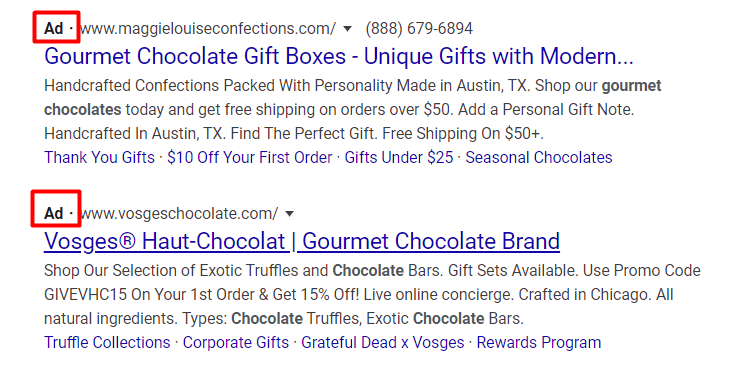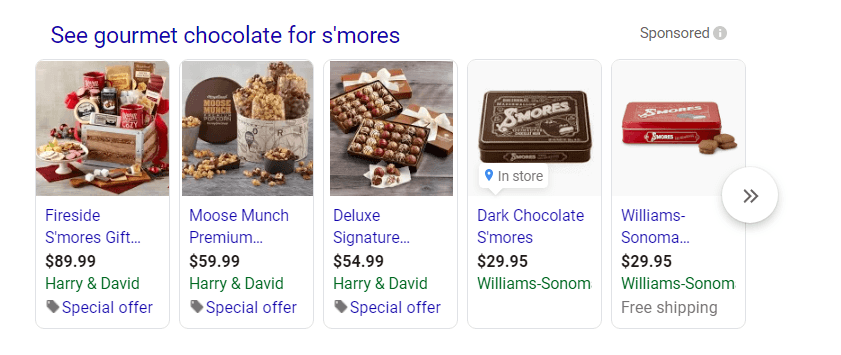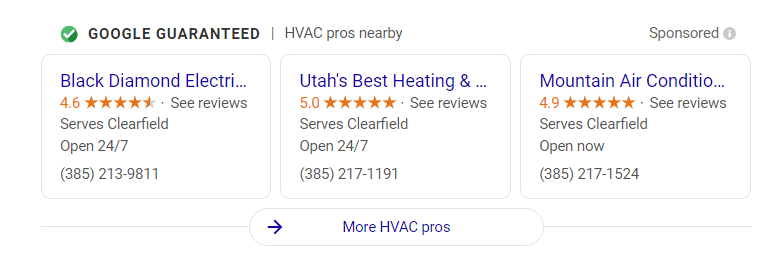Many marketers use marketing methods like Search Engine Optimization (SEO) and Google Ads to help drive traffic and leads for their business.
Many companies don’t know which strategies will bring them the best results when first planning a marketing campaign. When you look at SEO vs. Google Ads, you may wonder which is better for your business.
On this page, we’ll look at the SEO vs. Google Ads debate to help you pick which strategy is best for your business.
What is SEO?
SEO involves optimizing your website and its content so that it appears higher on the search engine results page (SERP).
Whenever users conduct a search, the search engine matches their query with relevant web pages. To help your page appear in relevant search results, you must use optimization techniques, like keyword integration and internal linking. A well-optimized page will generate traffic for your site, which will increase your conversions and sales.
Google determines your rank based on a variety of factors, including:
- Keyword selection: To help your business rank in the right search results, you need to choose relevant keywords for your page. Google will rank your page based on the keywords you select, so you’ll want to use keywords related to the topic of your page to help you appear and rank in relevant queries.
- Content quality: Google wants to direct users to high-quality content that provides them with the information they need. When you have long, informative content, Google is more likely to rank your website higher in the search results. A high-quality, lengthy piece of content will keep users on your website longer, boosting engagement and sending positive signals to Google about your page.
- Site security: Personal information security and privacy are rising concerns for Internet browsers, and Google has noticed, so it’s important to encrypt the information on your site using an SSL certificate. Google will rank secure sites over non-secure sites, so it’s important that you
- User experience (UX): Google wants to promote sites that offer a positive experience. You must focus on enhancing the user experience on your site, so leads will remain on it longer and help improve your ranking. Some UX features include easy navigation, headings and bullet points in content, and engaging images and videos.
- Mobile compatibility: Google has been pushing responsive design over the last couple of years due to the rise of mobile web browsing. Responsive design is important because it helps users view your site on any device. Since Google moved to a mobile-first indexing system, you need to have a mobile-friendly site to rank well in search results.
- Page speed: Users want information fast, so if you have a slow loading site, you’re not going to rank as well in the search results. Your site needs to load quickly, or users are likely to bounce from your page, which hurts your ranking.
An SEO campaign allows you to grow your site’s expert, authority, and trust (EAT) through content creation, optimization, and improvement of the user experience.
What are Google Ads?
Google Ads, previously known as Google AdWords, is a pay-per-click (PPC) advertising platform that enables marketers to reach interested leads.
PPC ads appear in several forms, including:
- Search ads: These text ads appear at the top of the SERPs, above the organic listings. While these ads look similar to organic search listings, they have the tag “ad” to help differentiate them from organic listings.

- Google Shopping ads: These ads appear as in a carousel format at the top of the SERPs with images of products from different brands. These listings include prices too, so users can comparison shop.

- Local Services ads: Local services ads are for service companies, like plumbers and electricians, who want to attract more local leads. These ads are similar to Shopping ads with the carousel format, but they list the service information for the business instead.

With PPC, you only pay when users click on your ad, making Google Ads a more cost-effective option than most traditional advertising methods like radio, television, or newspaper ads.
PPC ads operate on a bidding system. You bid for keywords you want your use for your ads. The bid amount is the most you want to pay when someone clicks on your ad.
When you bid for a keyword, your ad will appear in the search results for that keyword.
Your positioning is influenced by your bid and quality score, while the frequency of your ad depends upon your budget.
SEO vs. Google Ads
SEO and Google Ads focus on helping you increase relevant traffic on your site and earn more leads that convert. While these methods both help your business grow online, they differ greatly. Let’s take a look at SEO vs. Google Ads to see how these strategies compare:
| FEATURE | SEO | GOOGLE ADS |
| Traffic | Generates traffic continuously | Only generates traffic for the duration of the campaign |
| Placement | Placement only in search results | Can place ads in search results and on other Google-owned and partner websites |
| Cost for clicking | Doesn’t cost anything when someone clicks on your listing | You pay when people click on your listing |
| Keyword selection | Works for both long-tail and short-tail keywords | Works for both long-tail and short-tail keywords |
| Time | Results take time | Faster results |
| Tracking metrics | Tracking analytics and ROI take time | Track analytics and ROI instantly |
SEO and Google Ads each offer something unique to your business.
Which is better, Google Ads or SEO?
Whether SEO vs. Google Ads is better for your marketing campaign depends on your business’s goals.
Google Ads
Google Ads works best for companies that focus on leads and sales. This strategy is best for companies that want to see immediate results and be able to monitor their efforts as soon as they launch a campaign.
SEO
SEO works best if you’re looking to generate a steady flow of traffic over time or increase brand awareness. This strategy helps more people find your brand and learn about it. With a little time and effort, you can optimize your site for search engines and help your business drive more traffic.
Need Help with SEO?


